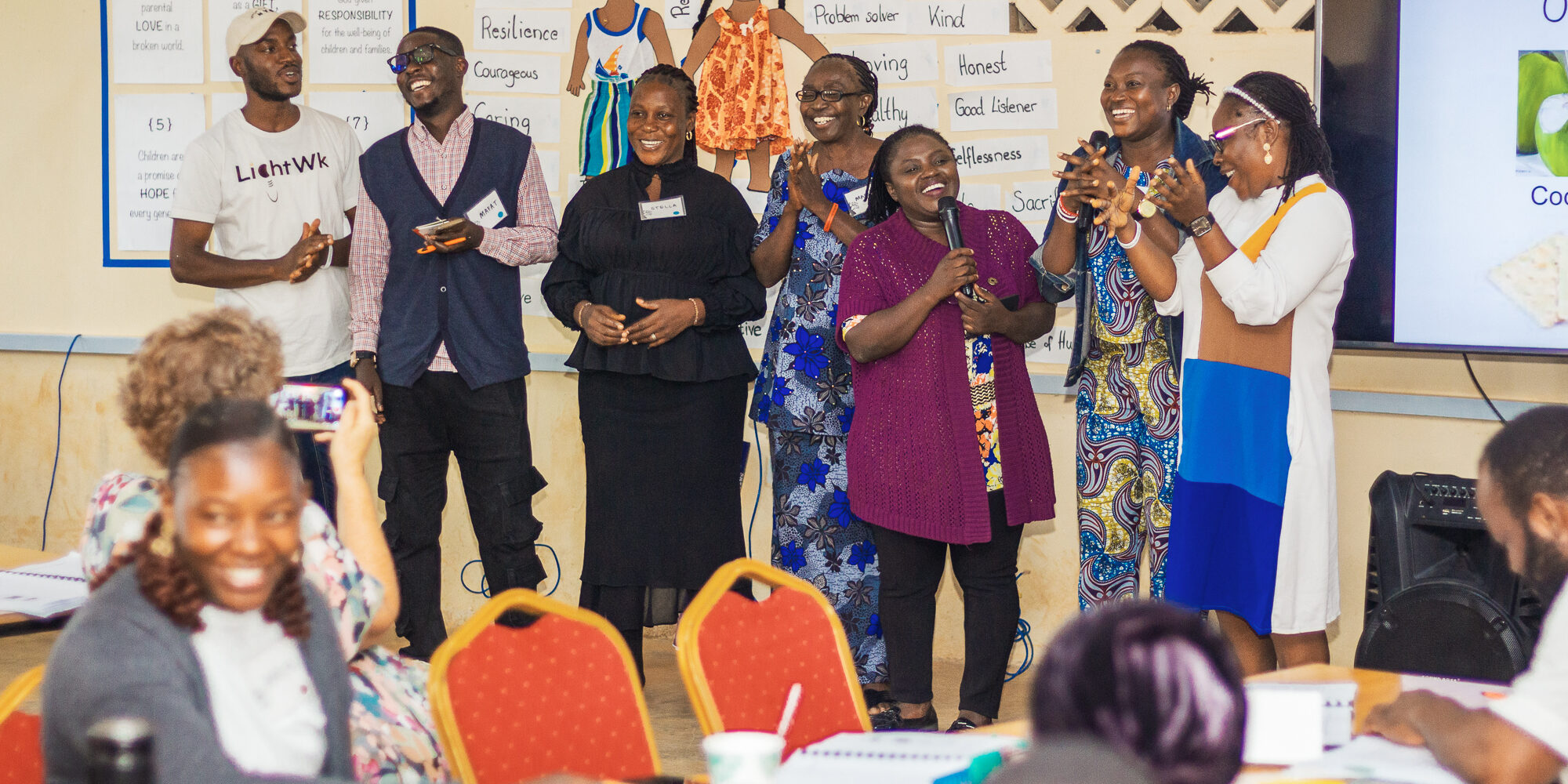Upon returning to Nigeria, we began with a review of the content covered in January, and part of our evaluation involved asking participants in our program how they had applied what they learned. What struck us was the high rate of application achieved by the participants.
The reports covered three main areas:
**Personal Impact:** Participants applied what they learned in their own families, with their own children, or with the children they were fostering. Eru, a missionary in the northern part of the country, was able to reunite his family. David, a father and grandfather, gathered all generations of his family, acknowledged his past errors and ignorance, and discussed how they could move forward together. Jerry, whose wife was pregnant in January, shared with her how their baby was developing and what was needed during pregnancy. They changed their diet to include more nutrients and started speaking to their child. Many parents reported that they began to play with their children and spend quality time with them, having shifted their beliefs that “being a good parent” involved only educating and feeding their children. Participants recognized how living in a conflict-prone area had impacted their culture and family life, enabling them to transition from survival practices to fostering relational connections.
**Impact on Work:** Teachers reported significant changes in classroom behavior, including asking students more questions and actively listening to them. This contributed to an environment more conducive to learning as well as reduced stress levels. One participant courageously shared that he had been a victim of sexual assault as a child. During our discussions on the impact of abuse and trauma-informed responses, he expressed, “I was healed during the lectures.” We are often amazed at the fruits of our work, even when we cannot fully understand how the Holy Spirit brings this about. He went on to explain how this experience transformed him as a man, husband, father, and teacher. He is now better equipped to build relationships with his students, feels calmer and happier, and over the past six months, students have begun approaching him to share their lives and seek guidance. A school principal noted the policy changes they had instituted, the new behaviors among teachers, and an overall shift in the atmosphere at the school, which serves 900 pupils.
**Broader Influence:** The participants extended their efforts beyond their immediate environments. Kpati took the initiative to run some of the training sessions at her church, emphasizing what God expects from us as followers of Jesus regarding advocacy for children. Her church became eager for more information and subsequently altered its Sunday school practices. Some full-time Sunday school teachers who serve across a broad region in isolated mission settings —five who had attended the training—returned to train others within their communities. Some teachers who were considering quitting were reinspired to continue their roles. Additionally, teachers from the secondary school in Wurin Alheri trained local government social workers using what they had learned, thereby influencing many traumatized children throughout the region.
The stories went on and on. Changed lives and practices in a hard context.








